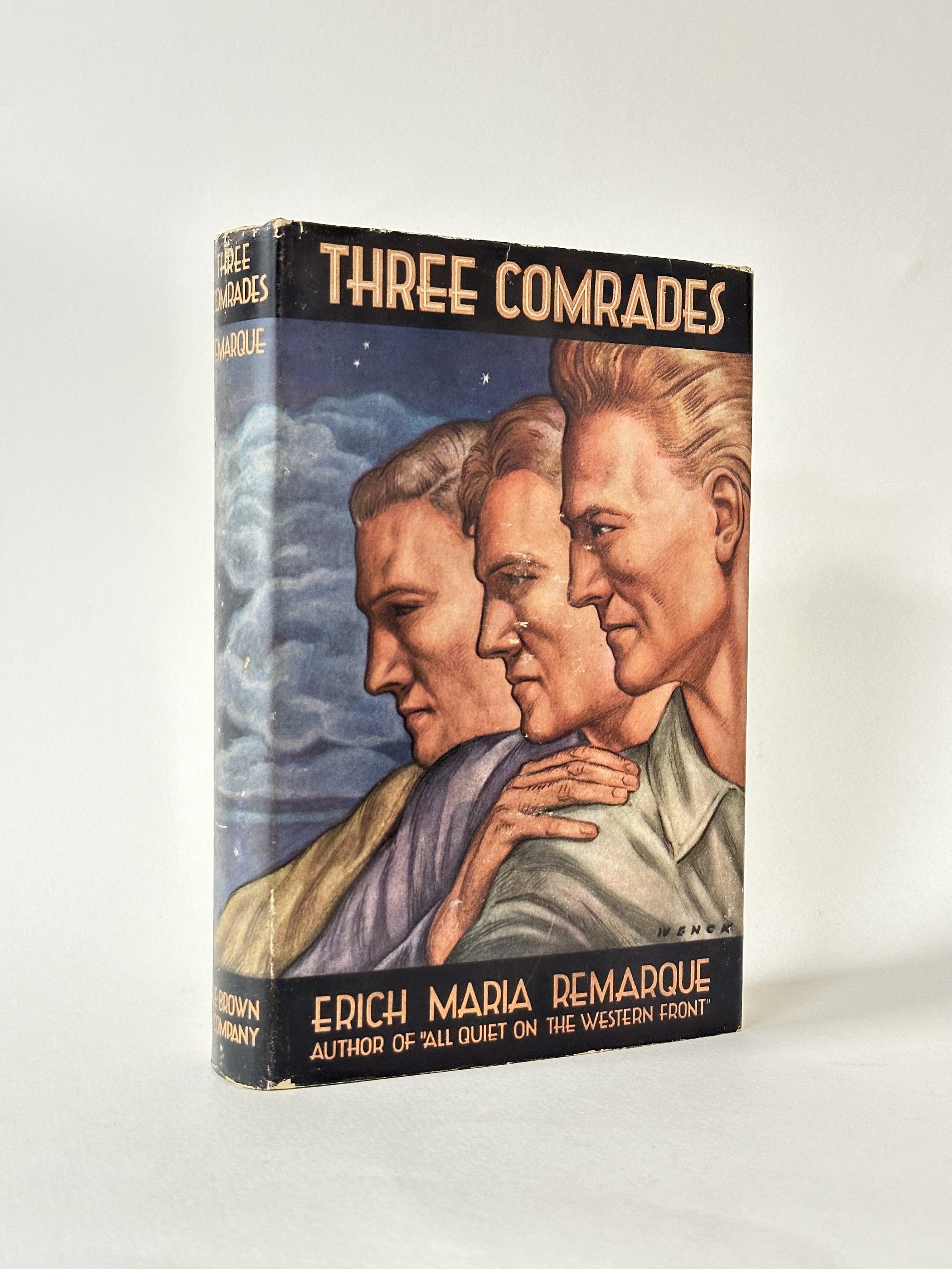 Image 1 of 5
Image 1 of 5

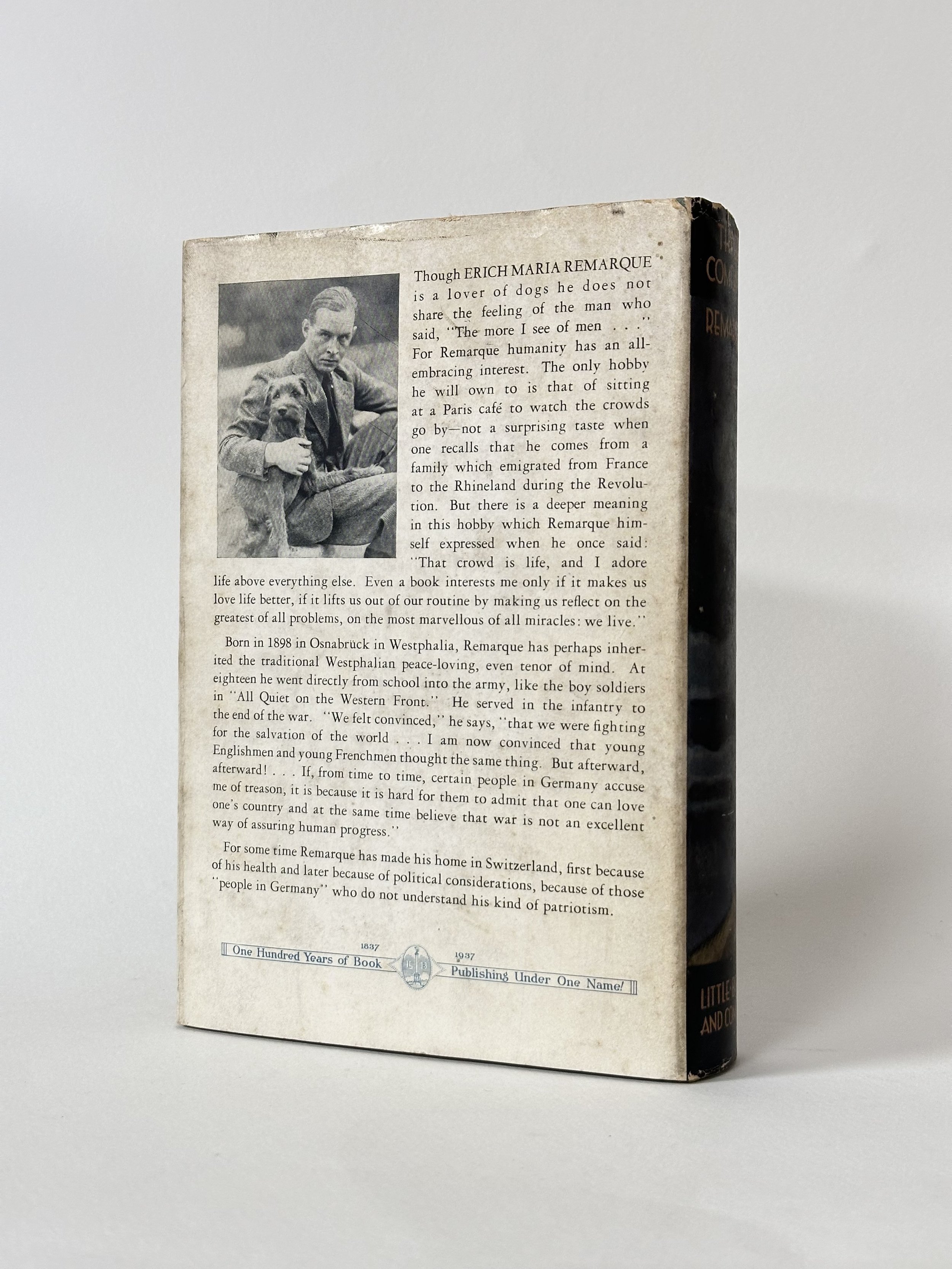 Image 2 of 5
Image 2 of 5

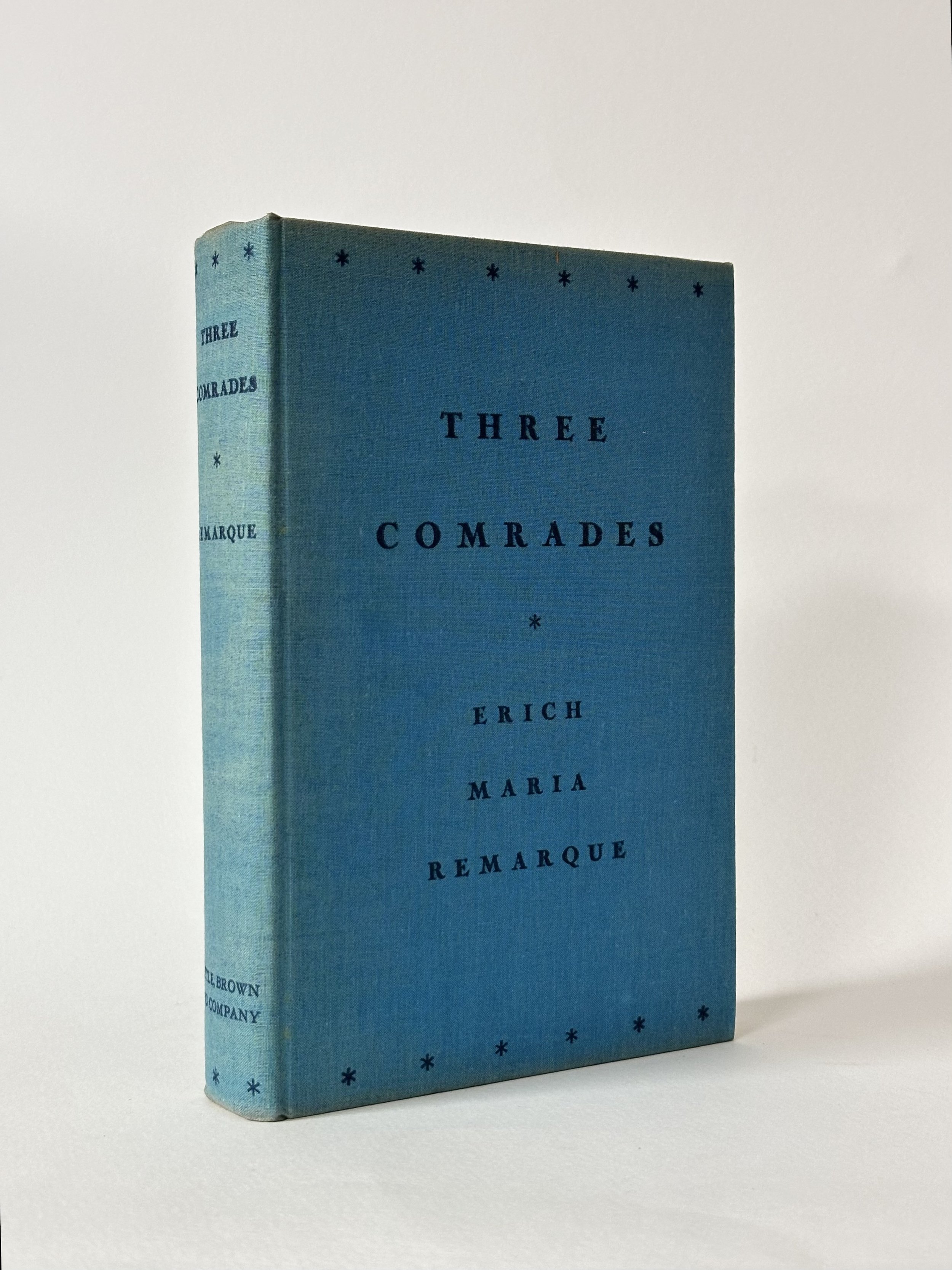 Image 3 of 5
Image 3 of 5

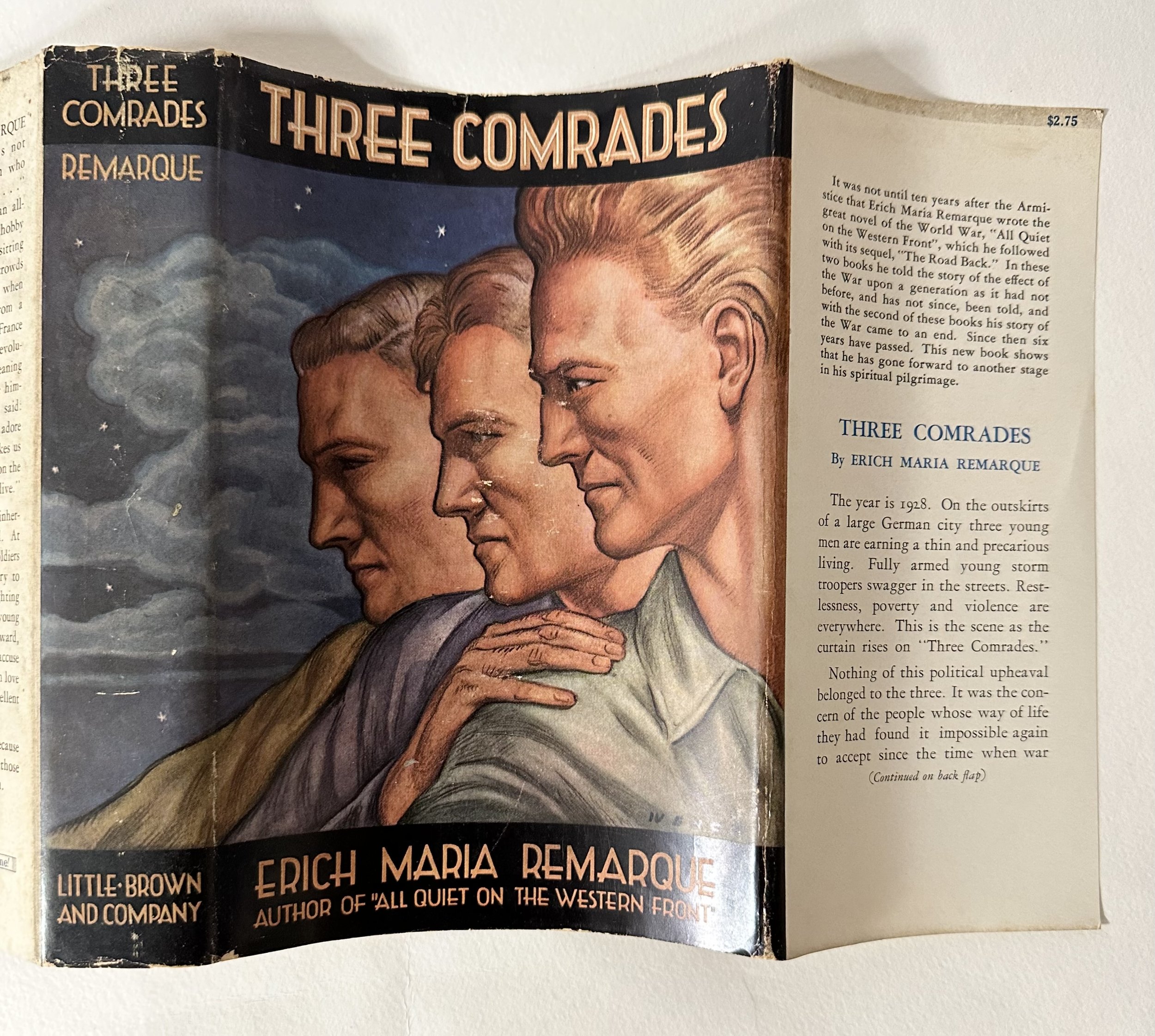 Image 4 of 5
Image 4 of 5

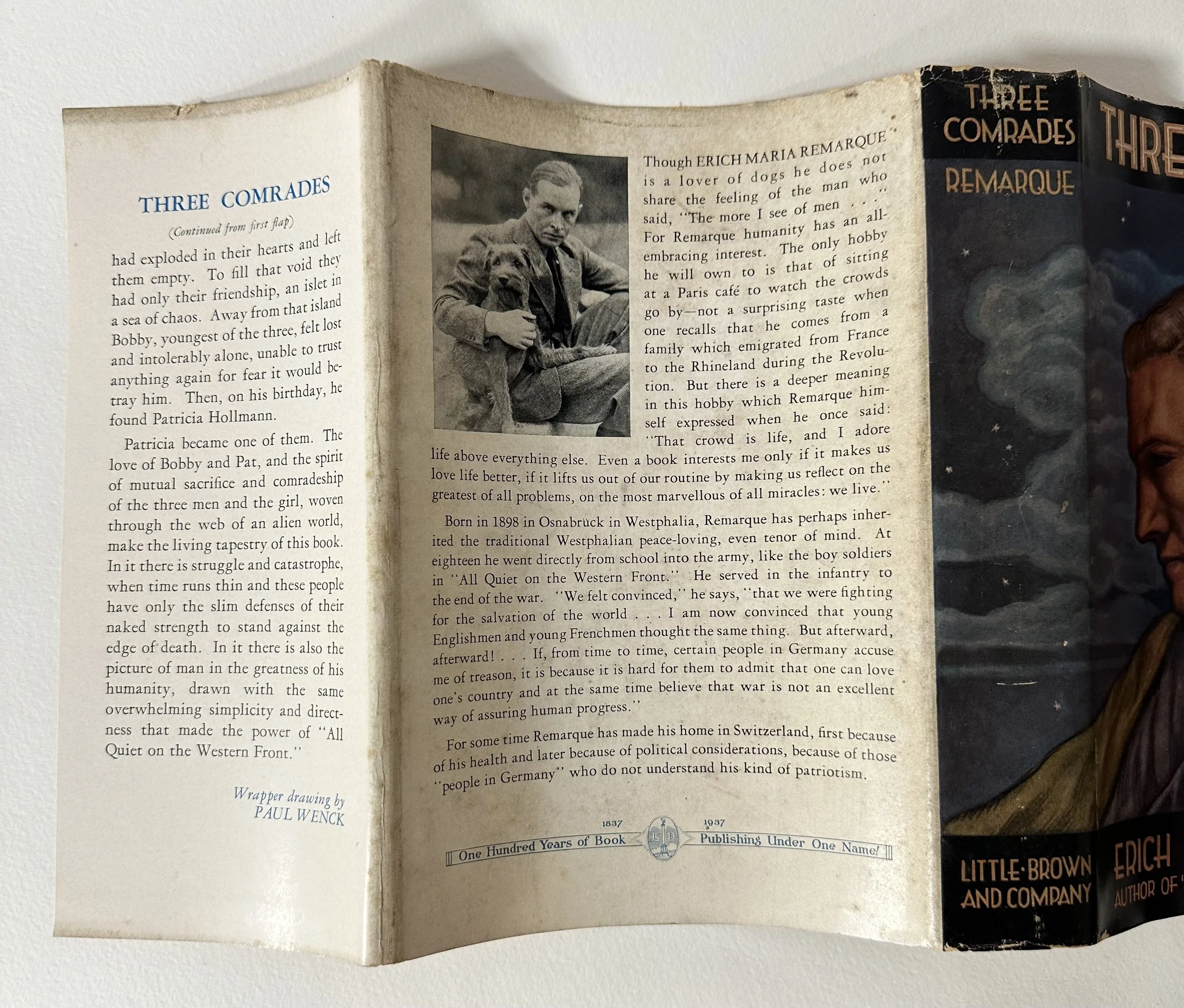 Image 5 of 5
Image 5 of 5






REMARQUE, Erich Maria. Three Comrades
REMARQUE, Erich Maria. Three Comrades. Trans. from the German by A. W. Wheen. Boston: Little, Brown and Company. 1937. 8vo. First American edition. Publisher's sea blue cloth lettered in dark blue to spine and front board, in the wonderful dust jacket designed by Paul Wenck. A very good copy, the cloth slightly faded at spine and at extremities, the textblock edges a trifle dust-marked, but the binding tight and square, the contents fine with faint offsetting to endpapers. The dust jacket unclipped ($2.75 net) and complete, slightly bumped and rubbed to some corners, around the spine tips, a trifle bumped to centre of front panel, but a sharp copy overall.
Originally published in Denmark in 1936, after Remarque had been exiled, the story follows three nihilistic friends, disillusioned by the Weimar state and still traumatised by their First World War experiences, as they struggle for survival in what one presumes to be Hamburg, where unemployment is rife and fully armed young storm troopers swagger in the streets. Goebbels had publicly declared Remarque unpatriotic, banning all of his four previous novels. A hypothesis for those works and this one can be shown in his response on nationalism: "If, from time to time, certain people in Germany accuse me of treason, it is because it is hard for them to admit that one can love one's country and at the same time believe that war is not an excellent way of assuring human progress." The Paul Wench dust jacket is a high point of contemporary social realist wrapper design.
REMARQUE, Erich Maria. Three Comrades. Trans. from the German by A. W. Wheen. Boston: Little, Brown and Company. 1937. 8vo. First American edition. Publisher's sea blue cloth lettered in dark blue to spine and front board, in the wonderful dust jacket designed by Paul Wenck. A very good copy, the cloth slightly faded at spine and at extremities, the textblock edges a trifle dust-marked, but the binding tight and square, the contents fine with faint offsetting to endpapers. The dust jacket unclipped ($2.75 net) and complete, slightly bumped and rubbed to some corners, around the spine tips, a trifle bumped to centre of front panel, but a sharp copy overall.
Originally published in Denmark in 1936, after Remarque had been exiled, the story follows three nihilistic friends, disillusioned by the Weimar state and still traumatised by their First World War experiences, as they struggle for survival in what one presumes to be Hamburg, where unemployment is rife and fully armed young storm troopers swagger in the streets. Goebbels had publicly declared Remarque unpatriotic, banning all of his four previous novels. A hypothesis for those works and this one can be shown in his response on nationalism: "If, from time to time, certain people in Germany accuse me of treason, it is because it is hard for them to admit that one can love one's country and at the same time believe that war is not an excellent way of assuring human progress." The Paul Wench dust jacket is a high point of contemporary social realist wrapper design.
REMARQUE, Erich Maria. Three Comrades. Trans. from the German by A. W. Wheen. Boston: Little, Brown and Company. 1937. 8vo. First American edition. Publisher's sea blue cloth lettered in dark blue to spine and front board, in the wonderful dust jacket designed by Paul Wenck. A very good copy, the cloth slightly faded at spine and at extremities, the textblock edges a trifle dust-marked, but the binding tight and square, the contents fine with faint offsetting to endpapers. The dust jacket unclipped ($2.75 net) and complete, slightly bumped and rubbed to some corners, around the spine tips, a trifle bumped to centre of front panel, but a sharp copy overall.
Originally published in Denmark in 1936, after Remarque had been exiled, the story follows three nihilistic friends, disillusioned by the Weimar state and still traumatised by their First World War experiences, as they struggle for survival in what one presumes to be Hamburg, where unemployment is rife and fully armed young storm troopers swagger in the streets. Goebbels had publicly declared Remarque unpatriotic, banning all of his four previous novels. A hypothesis for those works and this one can be shown in his response on nationalism: "If, from time to time, certain people in Germany accuse me of treason, it is because it is hard for them to admit that one can love one's country and at the same time believe that war is not an excellent way of assuring human progress." The Paul Wench dust jacket is a high point of contemporary social realist wrapper design.
